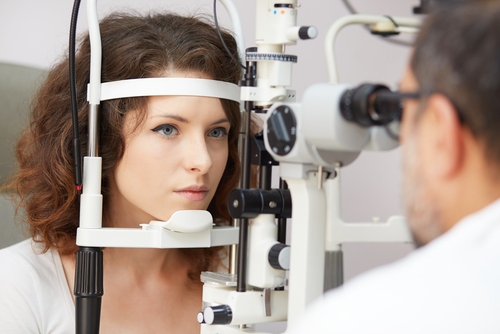Looking for tips on how to prepare for your next eye exam? We’ve got you covered!
Get ready to take some notes about how you can prepare for your next eye exam to help you out. Keep reading for helpful tips as well as questions you can ask to advocate for yourself as a patient as well!
Be Your Own Best Health Advocate
How involved and knowledgeable are you about your vision and eye health? Have you ever taken the opportunity to talk to your eye care provider to learn more about your eye health?
For most people, they have Googled what their eye doctor said during their exam after coming home.
If you fall into the latter category, it’s time to change that. You are your own best health advocate, after all.
What Should You Ask Your Eye Doctor During Your Exam?
Make sure to take the following questions with you. We recommend having them on you when you go for your eye exam to make sure you don’t forget!
Feeling green? Write your questions down on a post-it note or keep a tab on your phone open.
- Am I at risk for any eye diseases or conditions, and if so, which ones?
- If I am at risk of developing any eye diseases or conditions, are there steps I can take to prevent or reduce my risks?
- Will today’s exam include checking for glaucoma, cataracts, or age-related macular degeneration?
- How often do you recommend I schedule a comprehensive eye exam?
- If I am considering LASIK, can you provide me with a list of top LASIK surgeons you recommend?
Bring These Things to Your Eye Exam:
- If you wear glasses or contact lenses, it’s best to wear your eyeglasses and bring your contact lenses with you
- A current updated list of any medications you are taking. Make sure to include the dosage and frequency of these medications.
- Photo ID
- Your health insurance info
- A small notebook to write down anything you need to remember. You can also use a note-taking app on your phone if you don’t want to deal with writing things down.
Call Ahead
Before your scheduled eye exam, you should call to see if your eyes will be dilated. Dilation is necessary to diagnose conditions like macular degeneration, cataracts, and glaucoma.
If you know your eyes will be dilated, bring a friend along. With dilation, you won’t be able to drive yourself home.
It can take a couple of hours before your eyes get back to normal after dilation. If you work in front of a computer, you may want to consider an afternoon appointment and leave work early.
If Your Eye Care Professional Discovers a Problem
Try not to panic. Remember that one of the best and first lines of treatment is an early diagnosis. The earlier a problem is found and diagnosed, the earlier you can get treatment.
Can’t remember when you had your last eye exam? Schedule an appointment at Riverside Eye Center in Auburn, ME today!

